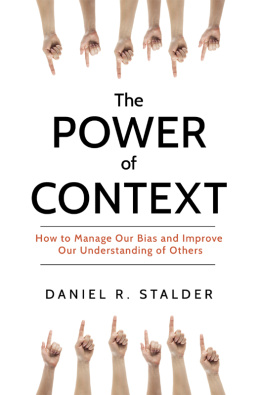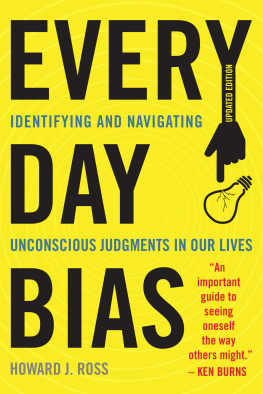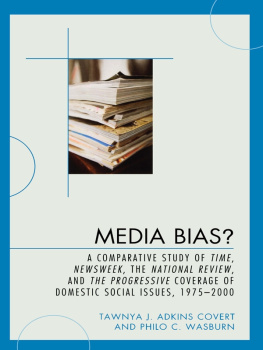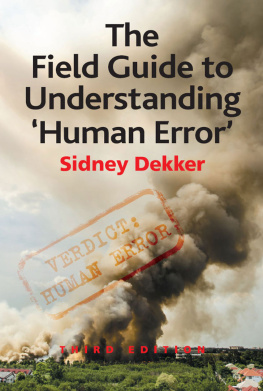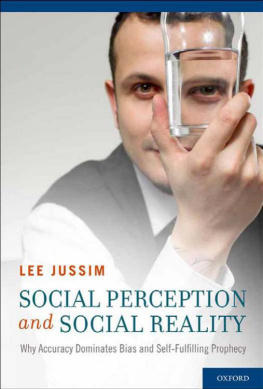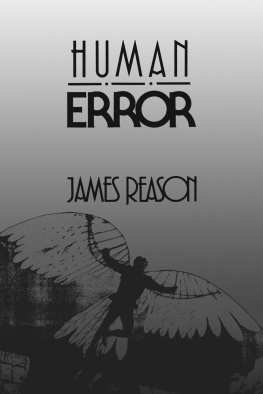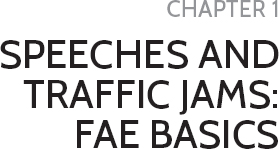I received a great deal of help to complete this book. Author and editor Susan Simmons was with me from the beginning to help me learn about the publishing process. She helped me focus my ideas, provided vital feedback on early chapters, and was always available for a question or social support. I gratefully acknowledge several others who read chapters and shared their expertise and experience. They include John Weaver, Lynda Warwick, David Havas, Heidi Berg, Julie McQuinn, Diane Knich, and especially my friend and fellow writer, Sherrie Yurk.
I thank editor Steven Mitchell and Prometheus Books for giving me this opportunity to share my message with the public. I thank Robert S. Baron and John Harvey, my mentors from graduate school who influenced me as a researcher, who never failed to find time to write a reference letter, and who gave me encouraging feedback when my book project began.
I thank my father, Robert Stalder, and late mother, Theresa Stalder, who were so supportive of my education at every stage. My mother would have been happy to see my book published. My wife and I lost other loved ones along the way, including my wife's great-uncle, Datta Patil, without whom my wife would never have come from India to Milwaukee, where we met. These losses were among many challenges in completing this project. My wife and I are very grateful to those who supported us during these times, especially my sister, Julie McQuinn.
I thank my father and siblings for confirming the details of the family stories that I shared in the book. I am appreciative of my sister-in-law, Anuradha Salunke, who so often went out of her way to ask about my writing and to express support. I am especially grateful to my wife, Shubhangi Stalder, who listened to my ideas, read chapters, encouraged me to break up my computer time with exercise, and supported me in many other ways. More than anyone, she had encouraged me to take on this project.
Finally, I thank the University of Wisconsin-Whitewater College of Letters and Sciences, which granted me a sabbatical when my book project began. And I thank my department colleagues who agreed to heavier teaching loads, without which my sabbatical would not have been granted.
The persisting pattern which permeates everyday life of interpreting individual behavior in the light of personal factors (traits) rather than in the light of situational factors must be considered one of the fundamental sources of misunderstanding personality in our time. It is both the cause and the symptom of the crisis of our society.
Gustav Ichheiser, social psychologist
Circumstances cause us to act the way we do. We should always bear this in mind before judging the actions of others. I realized this from the start during World War II.
Thor Heyerdahl, adventurer
Have you ever noticed that anybody driving slower than you is an idiot, and anyone going faster than you is a maniac?
George Carlin, stand-up comic
Traffic jams are no fun. You're wasting time and gas, breathing exhaust, probably bored, and now running late. On the highway it can be worse because you're trapped until the next exit. When you do reach an exit, you don't know if you should get off or stay the course in hope traffic will clear. And most of us get a bit irritable in heavy crowds, whether at a shopping mall or bumper to bumper in traffic.
So when you see an impatient jerk pull onto the shoulder and start passing everyone because he obviously doesn't think traffic laws pertain to him, you might get really mad. Who does he think he is? Right? What arrogance.
If you yell and honk your horn, maybe Mr. I'm-Better-Than-Everyone-Else will get the idea and get back in line with everyone else. And if you see this guy coming from behind and get angry enough, you might even edge out onto the shoulder to block him.
An everyday commuter, Peter Rowe, found himself in this scenario during a jam on the New Jersey Turnpike. In a letter to the editor in the New York Times, Rowe described how there is nothing more infuriating than watching these shoulder drivers whiz by. Rowe decided to pull out and block a shoulder driver to make the shoulder driver drive as slowly as everyone else. Rowe wrote, What a sense of power, and described how a nearby truck driver applauded him for righting this wrong. The editor titled the letter Let Those Shoulder Drivers Stew in Their Own Juice. Yeah!
This screw-the-shoulder-driver sentiment appears universal. In a Russian video clip titled Car Drives on the Shoulder to Avoid Traffic Jam, Gets Proper Payback and posted at a blog called 22 Words, a shoulder driver doesn't notice the end of the shoulder and so drives onto the guardrail. The clip shows the motorist's car stuck on the guardrail with its tires hovering off the ground. The clip also shows Russian commuters strongly deriding the driver. My Russian-speaking friends were a little disturbed when I asked for translation help.
The blogger who posted the video wrote, It feels good to see this car get owned. So, so good. Other commenters wrote, That made my day, and What an idiot.
Of course, not everyone reacts this way to a stranded motorist or shoulder driver, but if either taking action or feeling moral indignation sounds like you, then you might be committing the fundamental attribution error or FAE. Shoulder drivers are breaking the law, and they might be arrogant. But maybe there's a situational factor in play, maybe even an emergency. What if some shoulder drivers have good reasons for their actions?
Once, during a family trip, my dad was the shoulder driver passing everyone and getting honked at. We were nearly out of gas on a Tennessee interstate in stop-and-go, bumper-to-bumper traffic. My brothers, sister, and I were kids, and we were a bit scared.
With the gas needle on empty, my dad decided to drive on the shoulder to the next exit ramp. Cars honked, and towering semi-trucks pulled out to block us. My dad swerved. My mom screamed. My sister recalls feeling very small. My dad decided it was better to risk being stranded than getting in a collision and pulled back into traffic. We made it to a gas station in time.
It's usually impossible for a bystander to be sure why a driver does something extreme. Being unwilling to consider even the possibility of an emergency amounts to the FAE, no matter how pinheaded that other driver appears. Even assigning a 10 percent probability to some unknown emergency is better than zero if your goal is to avoid this bias.
In the case of my family, even if running out of gas does not rise to the level of an emergency in terms of state law or social norms, my dad was worried about stranding his wife and four young kids in the middle of nowhere, before the age of cell phones. Yes, maybe my parents should have filled the tank sooner, but that is a separate issue. My dad drove on the shoulder for a more complex reason than being arrogant or a jerk. (By the way, my dad's nature is quite the opposite.)
Partly because of this experience, I find it hard to get angry at the shoulder drivers who occasionally pass me during traffic jams. Maybe the shoulder driver is a total jerk, or maybe something else is going on.
A FUNDAMENTAL MISTAKE
The FAE is a very common tendency in explaining an individual's behavior or outcome, especially in Western cultures. The FAE has two co-occurring parts. First, we quickly overestimate the causal role of dispositional factors, such as the individual's traits, attitudes, feelings, preferences, motives, abilities, or inadequacies. Arrogant jerk. These explanations are called internal or dispositional attributions. Second, we overlook or underestimate the possible contribution of situational factors or specific circumstances. Running out of gas. Explanations involving such circumstances are called external or situational attributions. In social psychology parlance, an attribution is an explanation.

